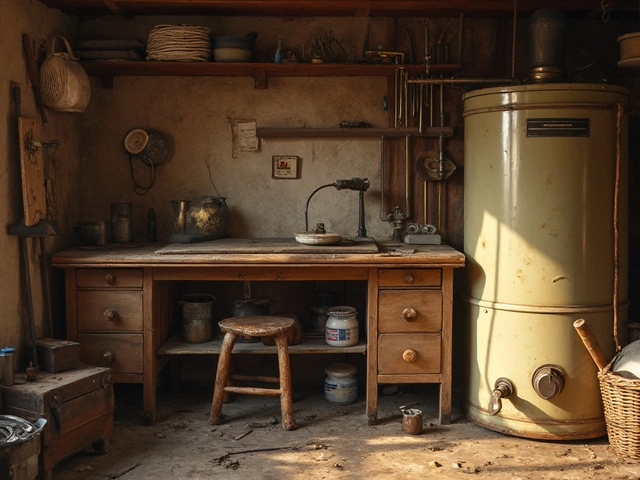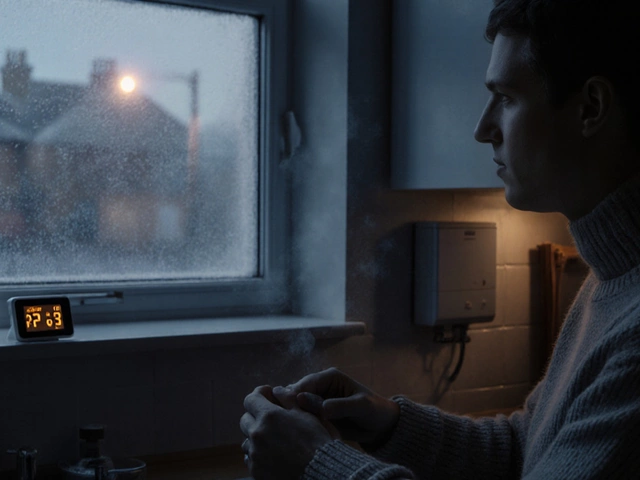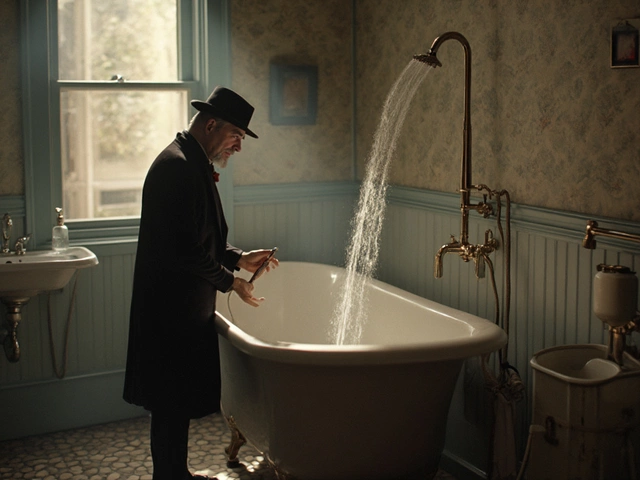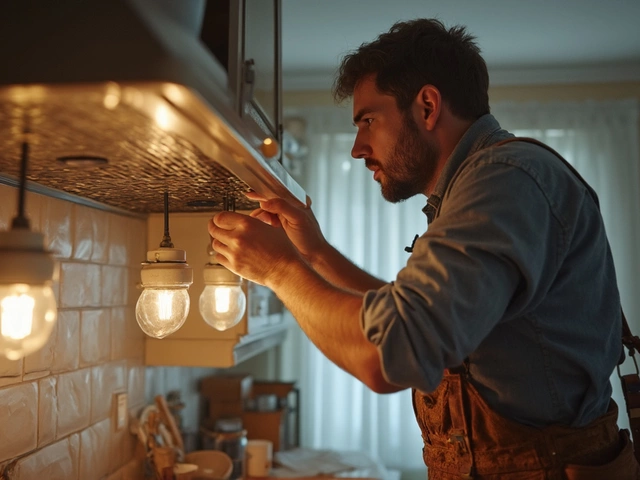Got a boiler that feels slow or makes weird noises? Chances are it’s losing efficiency. A well‑tuned boiler uses less fuel, keeps your home warm, and cuts your bills. The good news is that most of the quick fixes are things you can do yourself or with a quick call to a local expert.
First, look at the pressure gauge. It should sit between 1 and 1.5 bar when the system is cold. Anything lower means the boiler can’t push hot water around effectively, and higher can cause leaks. Adjusting the pressure is simple – just follow the fill‑valve instructions in your manual.
Next, clear any dust from the radiators and the boiler’s heat‑exchanger. A layer of grime blocks heat transfer, making the boiler work harder. A quick vacuum or a soft brush does the trick. While you’re at it, bleed any cold spots in radiators using the bleed key – you’ll hear a hissing sound as air escapes, then the radiator warms up faster.
Regular servicing is the backbone of good efficiency. A qualified engineer will check the burner, the pump, and the flue for any blockages. They’ll also test the combustion to make sure the boiler is burning fuel correctly. In 2025, a boiler service typically costs between £80 and £150, but skipping it can cost you double in higher fuel bills.
If your boiler is more than ten years old, ask the engineer about its seasonal efficiency rating (the SEDBUK rating in the UK). Modern models often hit 90‑95% efficiency, while older ones can dip below 80%. When the gap widens, replacing the unit might be cheaper than endless repairs.
Another easy win is upgrading the thermostat. A programmable or smart thermostat lets you lower the temperature when you’re out or asleep, cutting waste. Set the heating to turn off automatically at night and come back on just before you wake up – you’ll notice the savings quickly.
Insulation matters too. Even the best boiler can’t fix a poorly insulated house. Check for drafts around doors and windows, add loft insulation, and consider pipe insulation for the heating loop. These steps keep the heat where you want it and reduce the load on your boiler.
Finally, keep an eye on the boiler’s run‑time. If you notice it cycling on and off many times a day, it could be a sign of a faulty pump or a sensor problem. Short cycling wastes fuel and can wear out components faster. A quick service call can pinpoint the cause before it turns into a costly breakdown.
In short, a few simple habits – checking pressure, cleaning heat surfaces, bleeding radiators, and scheduling annual service – go a long way toward keeping your boiler efficient. When the boiler is old, noisy, or constantly breaking down, weigh the repair cost against a new, high‑efficiency model. The right choice saves money, keeps you warm, and reduces your carbon footprint.
Ready to boost your boiler’s performance? Start with the quick checks, book a service, and watch your energy bills drop. If you need a trusted local engineer, give Bognor Regis Appliance Repair Experts a call – we’ll make sure your boiler runs at its best.

Ever wonder if switching your boiler on and off harms it? This article unpacks how boilers handle frequent power cycles, what really wears them out, and when switching off could save you cash or cause problems. Find out the best ways to run your boiler for both safety and savings. Practical tips and real facts—all in plain English. Avoid costly repairs by knowing how to treat your boiler right.

Wondering how long your water heater should last? This article dives into the expected lifespan of various types of water heaters, factors impacting their longevity, and signs it might be time for a replacement. With practical tips on maintenance, you can extend the life of your heater and avoid breakdowns. Learn what to watch out for to ensure you have hot water when you need it, without unexpected surprises.

When facing a broken boiler, many homeowners find themselves debating the merits of repairing versus replacing. Considering factors like costs, age of the boiler, frequency of issues, and energy efficiency can help make an informed decision. Exploring repair benefits as a cost-saving solution might be worthwhile for some, while others may find replacement offers better long-term advantages. Understanding your system's specific needs ensures optimal performance during the colder months.

Find out how much boiler repair costs in 2025, what factors affect the price, typical price ranges, and tips to get fair quotes and save money.

A puzzling situation arises when your shower lacks hot water while the sink heats perfectly fine. This article dives into possible reasons like different pipe routes, shower valve issues, and water heater capacity. It also offers practical solutions, such as checking the temperature settings and flushing the water heater to remove sediment. Understanding common plumbing malfunctions can lead to quick fixes without calling a professional.

Understanding whether an electrician can repair your extractor fan might save you time and hassle. Dive into the nitty-gritty of what electricians can do for your fan problems, and get tips on how to maintain these helpful appliances. This guide covers the skills electricians bring to the table and when a specialist might be needed. Stay informed and prepared for any fan-related issues that might come your way.